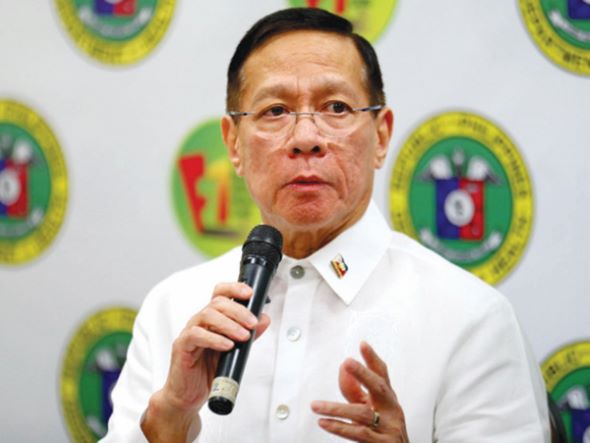Active coronavirus disease (COVID-19) cases in the Philippines jumped to over 81,000.
This comes as the Department of Health (DOH) reported more than 12,000 new infections on Wednesday (August 11).
The DOH case bulletin showed that the number of active cases stood at 81,399 after 12,021 new COVID-19 cases were detected nationwide.
The last time that the Philippines reported over 12,000 cases was on April 10 with 12,674 cases at that time.
Of the active cases, 94.8 percent have mild symptoms, 1.5 percent are asymptomatic, one percent are in critical condition, 1.6 percent are severe, and 1.15 percent are in moderate condition.
The country’s running tally of confirmed cases is now at 1,688,040.
The death toll increased to 29,374 or 1.74 percent of overall cases after 154 more people lost their lives.
Meanwhile, 9,591 more patients were tagged as recovered, raising the recovery count to 1,577,267 which is equivalent to 93.4 percent of the total case count.
The positivity rate or the percentage of patients who tested positive for SARS-CoV-2 or the virus that causes COVID-19 is at 21.9 percent based on the 38,478 tests reported on August 9, the DOH said.
The DOH also said that 68 percent of the intensive care unit beds, dedicated for COVID-19 patients nationwide, are occupied; while 57 percent of the isolation beds are currently utilized.
Eligible individuals were urged once again to get vaccinated against COVID-19. The DOH likewise urged the public to strictly adhere to the health safety protocols.
Meanwhile, government auditors with the Commission on Audit (COA) released a report Wednesday(August 11) stating that billions of pesos worth of funds in the DOH COVID-19 response were riddled with deficiencies that contributed to challenges in the agency’s pandemic handling.
The DOH is headed by Secretary Francisco Duque III.
COA made the assessment on the P67.32 billion funding in its 2020 report.
Of that figure, it attributed deficiencies in P66.28 billion mainly to “non-compliance of pertinent laws and rules and regulations.”
Auditors gave DOH an adverse opinion, which noted its financial statements did not “present fairly, in all material respects,” the agency’s financial position.
“These contributed to the challenges encountered and missed opportunities by the DOH during the time of state of calamity/national emergency,” COA said, “and casted doubts on the regularity of related transactions.”
COA added that continuous audit showed additional deficiencies of some P1.036 million. The total stood at P67,323,186,570.57-worth of taxpayers’ money.
The auditing body called the DOH’s funds that were not obligated or disbursed by end-2020 as “counter-beneficial” to its efforts to curb the spread of the disease at the time through providing quality health services.
“It can, thus, be said that these funds that remained idle as at year-end were not translated to much-needed health supplies,” COA continued, “equipment and services that could have benefited both health workers and the general public during the critical times of the pandemic.”
The DOH has faced a barrage of criticism in 2020 for its response to one of Southeast Asia’s worst virus outbreaks.
It went as far as a majority of senators calling for Duque’s resignation or replacement, only to be bucked by President Rodrigo Duterte, who has been vocal in his support for the health chief amid the controversies.
In response to the COA report, Health Secretary Duque said the P67.32 billion in COVID funds are all “accounted for.”
Duque stressed the DOH acknowledged the findings concerning these funds and is currently addressing compliance issues and deficiencies.
“The P67.32 billion is accounted for. Nothing went to corruption and these funds are for our countrymen. The flagged issues are being addressed by the DOH,” Duque said.
He gave assurance that the funds allotted to the DOH “are all spent for the procurement of test kits, PPEs, payment of health workers’ benefits and salaries.”
The DOH said of the P79.7-billion COVID funds received by the agency based on the COA reports, P68.9 billion was utilized as of Dec. 31, 2020 for the COVID response.
With the enactment of Republic Act No. 11519 extending the availability of appropriations under Bayanihan 2, the DOH said it was still able to utilize the unobligated balance for this year.
The agency said it has “always been transparent and cooperative to yearly auditing efforts within the government.”
The DOH gave assurance that it has always complied with the recommendations of the COA.
Duque said the DOH’s books are open to public scrutiny.
“We take our COA findings very seriously and have been working to further improve our processes and controls so that we can serve the public most effectively, especially during this pandemic,” he said.
Meanwhile, senators lamented the COA report.
Senators said that the underspending of the DOH can be deadly as it was also a confirmation of the Senate’s view that incompetence and corruption in the government’s pandemic response led to the country’s being the worst performer in the region.








